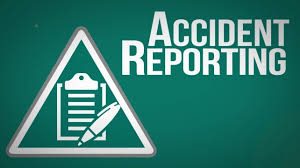Here at Walker Health and Safety Services Limited, we have researched (from various websites) and identified a number of statistics on workplace injuries and health and safety in Great Britain. Upon reflection, it is evident that the number of injuries remains high, underscoring the importance of prioritising workplace safety. The stats show that when health and safety rules are overlooked, it reveals what can go wrong.
It is essential that workers, employers, and managers all play their part in creating a safe and secure workplace. Following health and safety rules is crucial for protecting employees from harm, ensuring legal compliance, boosting productivity, and enhancing business reputation.
This shouldn’t be seen as a burden as it offers significant benefits – reduced costs, reduced risks, lower absences from employees, and lessened threat of legal action.
Health and safety with the workplace statistics for 2025:
Source: The Health and Safety Executive (HSE)
Source: The Health and Safety Executive (HSE)
Source: Estimates based on self-reports from the Labour Force Survey for people who worked in the last 12 months
Source: Counts from death certificates and estimates from epidemiological information
Source: Counts from death certificates and estimates from epidemiological information
Source: RIDDOR
Source: The Health and Safety Executive (HSE)
Source: The Health and Safety Executive (HSE)
Source: Estimates based on HSE Cost Model
Source: Estimates based on HSE Cost Model
Contact us if you feel you require assistance with your health and safety requirements.
Do you log all accidents and near misses in the company?
Are your health and safety documents up to date and do the risk assessments reflect any recent accidents or near misses?
Do you learn from accidents and near misses?
This week the focus is on the impact of avoidable workplace injuries.
Contact us if you require further information.
Prioritising your legal requirements for employee health is one of the best investments you will make. Not only will this ensure that accidents and injuries are kept to a minimum, but you will also avoid large fines as a result of non-compliance.
After these statistics, the HSE will be hot on the tales of any business who tries to evade their legal responsibilities. So what can you do now to reduce work related accidents and injuries?
We’re not saying that all businesses don’t take employee health and well being seriously. We know they do! Working closely with our customers, we able to help implement health and safety controls and measures that adhere to HSE legal frameworks.
Along with protecting your workforce from work related accidents and ill health, you also protect your business. The upfront cost of ensuring you achieve your legal requirements is outweighed by the cost of fines, sick days, and the cost of recruiting new employees if someone leaves due to stress or long-term ill health. So if your business needs a once over, we can definitely help.
Contact us if you have any queries.
Why have this talk? Understanding the root causes of accidents allows the organisation to make changes to control measures to prevent reoccurrence in the future.
What will this talk cover? Why accident investigation is important and how to support an investigation.

Accident Investigation Toolbox Talk
If a serious accident or fatality has occurred you will need to shut down the site to prevent further injury and so that equipment/substances, etc can be investigated.
Explain the company policy on when this should happen or who makes the decision.
If you are involved in an accident investigation, whether internal or external, you should:
Do you have any questions for me?
Contact us for further information.

You must only make a report under RIDDOR (The Reporting of Injuries, Diseases and Dangerous Occurrences Regulations 2013) when:
• an unintended incident at work has led to someone’s possible or actual exposure to coronavirus. This must be reported as a dangerous occurrence.
• a worker has been diagnosed as having COVID 19 and there is reasonable evidence that it was caused by exposure at work. This must be reported as a case of disease.
• a worker dies as a result of occupational exposure to coronavirus.
Dangerous occurrences
Read about RIDDOR 1
If something happens at work which results in (or could result in) the release or escape of coronavirus you must report this as a dangerous occurrence. An example of a dangerous occurrence would be a lab worker accidentally smashing a glass vial containing coronavirus, leading to people being exposed.
Cases of disease: exposure to a biological agent
Read about RIDDOR 2
If there is reasonable evidence that someone diagnosed with COVID-19 was likely exposed because of their work you must report this as an exposure to a biological agent using the case of disease report. An example of a work-related exposure to coronavirus would be a health care professional who is diagnosed with COVID-19 after treating patients with COVID-19.
Read about RIDDOR 3
If someone dies as a result of a work-related exposure to coronavirus and this is confirmed as the likely cause of death by a registered medical practitioner, then you must report this as a death due to exposure to a biological agent using the ‘case of disease’ report form. You must report workplace fatalities to HSE by the quickest practicable means without delay and send a report of that fatality within 10 days of the incident.
Find out more about reporting incidents 4
Contact us if you require further information.
